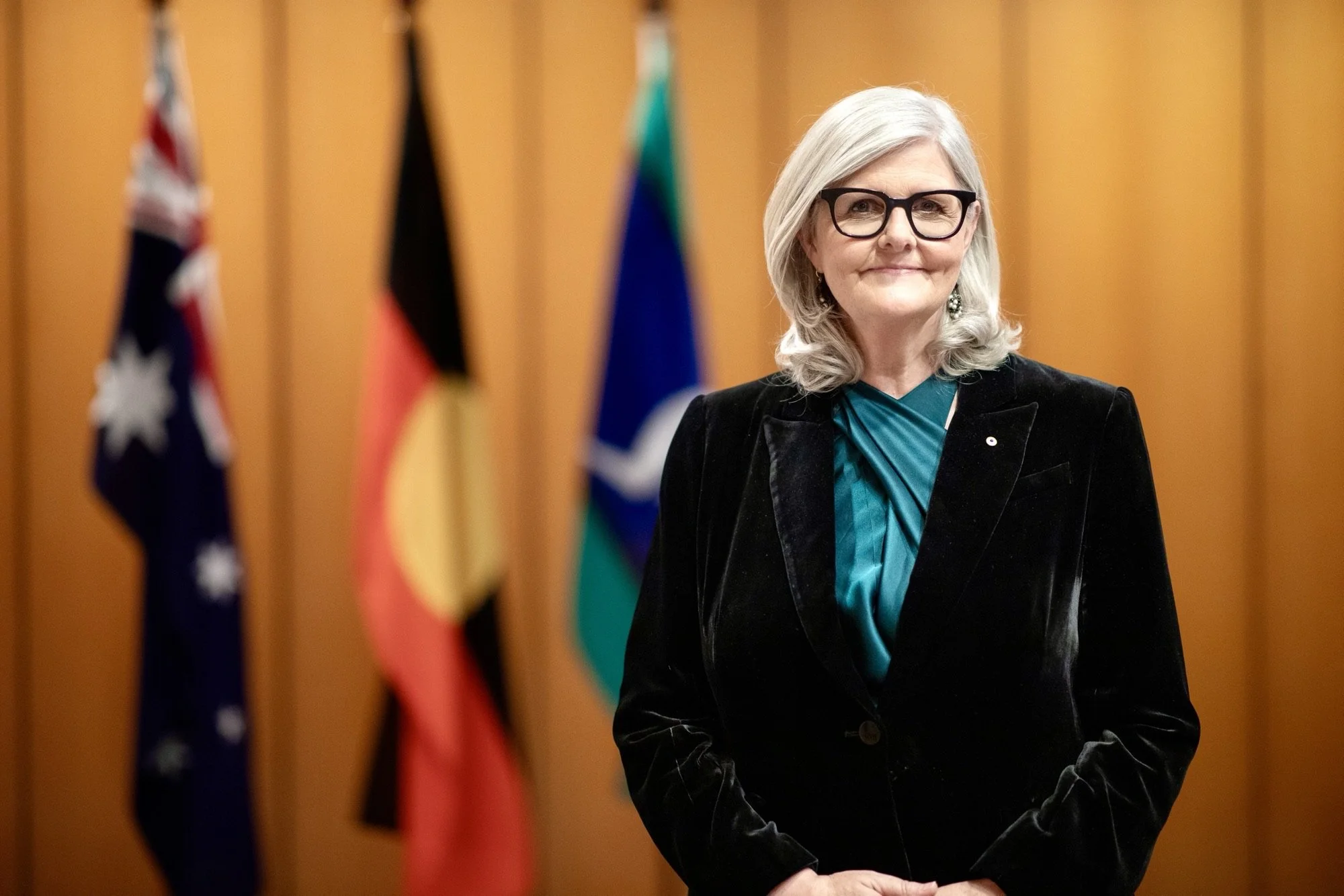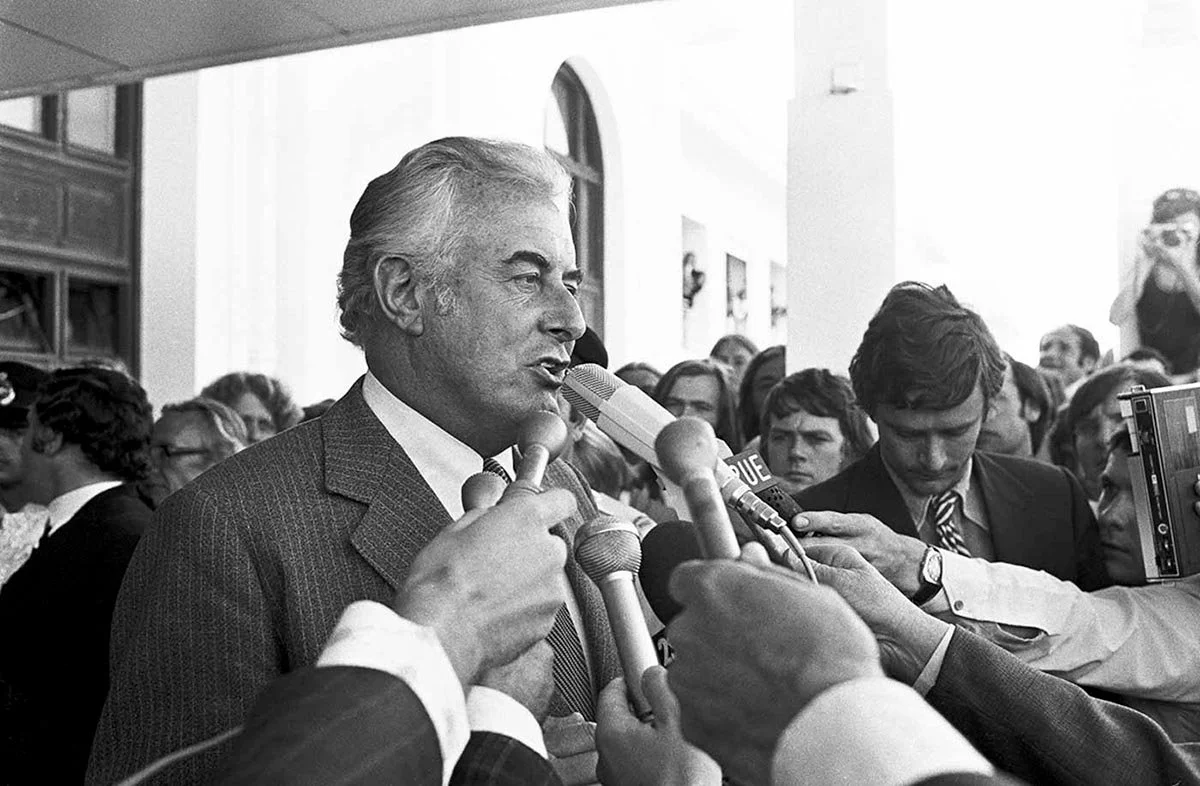Australia has a new Governor-General, but what do they do?
Understanding the Governor-General in Australia
Australia’s highest public office has undergone significant change, welcoming its latest occupant, Sam Mostyn AC, following the retirement of former Governor-General David Hurley on July 1st.
Sam Mostyn will become the 28th Governor-General for the Commonwealth of Australia; Acting as the King’s representative for Australia or Australia’s Head of State, whilst serving as Commander-in-Chief of the Australian Defence Force.
While these titles bestowed to Sam Mostyn certainly sound majestic, the role of the Governor-General is becoming increasingly scrutinised for its actual relevance to Australia’s modern democracy.
Namely, common criticism being that the G-G does not create and implement law or give judgement; simply, they just assent laws.
But is this critique really fair?
Sam Mostyn, 28th Governor-General of Australia | gg.gov.au
Background
The role of Governor-General finds its roots in Australia’s colonial history. Originally being the posting of nobility and military, they were assigned by the British Empire to maintain stability and prevent rebellion in the Australian colonies.
However, through the 19th century this arrangement become unpopular, prompting the creation of colonial parliaments to maintain a check on the powers of the Governors.
Upon Federation of the Colonies in 1901, the Constitution of Australia followed this tradition of colonial governance by ensuring the system of parliamentary democracy focused on a single executive leader.
And no, we aren’t talking about the Prime Minister, but the Governor-General.
The Constitution for instance stipulates that the Governor-General has power over the assent of laws, the calling of federal elections, the administration of government, the approval of judges, and much more!
The Constitution would even suggest the Prime Minister has no power to make any changes across government.
Role of the Governor General
So, if the Governor-General holds so much power, why then, does the Prime Minister appear to do the job for them?
Australia follows the Westminster system of government, which aligns with the idea of constitutional monarchy. That is, that the monarchy operates within imposed democratic restrictions established by the Parliament.
Therefore, whoever controls the parliament, usually the largest political party, gets to form the Cabinet or Executive Ministry as referenced by section 62, who make the decisions of the day.
‘There shall be a Federal Executive Council to advise the Governor-General in the government of the Commonwealth, and the members of the Council shall be chosen and summoned by the Governor-General and sworn as Executive Councillors, and shall hold office during his pleasure’
Section 62 of the Australian Constitution
In a nutshell, over the past century, the largest political parties are given approval to form the basis of Government and act in the role of the Governor-General, carrying out the administrative tasks such as finance, defence, foreign affairs, and much more!
Today, the Prime Minister and their political party pass laws, decide when to call elections, administer the government, approve judges and much more.
There have only been two instances where the Governor-General has actually gone against the will of the Government.
First and most bizarrely in 1900, when the first appointee of the title, Lord Hopetoun came to Australia to appoint an interim Prime Minister until elections finalised. Having little knowledge of colonial Australian politics, Lord Hopetoun accidentally appointed an anti-Federalist to serve in what is now known as the Hopetoun Blunder.
Secondly and most infamously, in 1975 the Whitlam government was locked in a dispute with the opposition-controlled Senate over government spending. This caused a breakdown in government processes which resulted in then Governor-General John Kerr dismissing Gough Whitlam as Prime Minister and dissolving Parliament, in what is now known as The Dismissal.
Gough Whitlam speaking following the dismissal | nma.gov.au
Back to Sam Mostyn
Nowadays, the Governor-General embodies the mood of the nation. For instance, between 2014 to 2024, Australia was governed by Sir Peter Cosgrove and David Hurley, both with highly respected military backgrounds.
However, Sam Mostyn by contrast, will become Australia’s second female Governor-General (following Dame Quentin Bryce in 2008) and has an experienced background in business governance, social advocacy and women’s rights.
This year’s swearing in ceremony itself was a modernisation which saw an Aboriginal swearing in and Welcome to Country performed. Sam Mostyn also made an important pitch for an Australia that is focused on caring for others:
“Care has a deep and resonant place in our Australian identity. Care is the gentle thought and the outstretched hand that Australians have always been ready to share when great challenges present themselves. Care is the quieter, better part of ourselves”
“Care has a deep and resonant place in our Australian identity. Care is the gentle thought and the outstretched hand that Australians have always been ready to share when great challenges present themselves. Care is the quieter, better part of ourselves.”
Sam Mostyn, Governor-General of Australia
Backlash
However, prior to assuming the position, there was already controversy, due to a record pay increase of $200,000following Sam Mostyn’s succession. A bill passed by the government increased the annual salary from $495,000 to $709,017 of taxpayer money in alignment with the salary of the Chief Justice of the High Court.
The other tasks, such as hosting foreign leaders and visiting the community are ceremonial and bear little weight in the grand scheme of things. This has inflamed debate about the role, especially in the current cost of living situation Australia is currently in.
This also comes as calls mount for the appointment of an Indigenous Governor-General, a move already done by South Australia.
Sam Mostyn, Australia’s last Governor-General?
It is enticing to say given Australia’s democratic trajectory that Sam Mostyn could be Australia’s last Governor-General. The role over the past centuries has been continually weakened, with its occupants becoming increasingly forgotten by the Australian public.
However, as proposed in the 1999 referendum to establish an Australian republic, 54.87% of voters rejected an attempt to reform the role into something more representative of Australia, even as responsibilities have diminished.
The reality is the public view the Governor-General as a testament to both the old and new Australia, representing a bridge between our rocky colonial foundation and for a more progressive future.
More than anything, Sam Mostyn’s appointment represents a shift towards caring politics.



